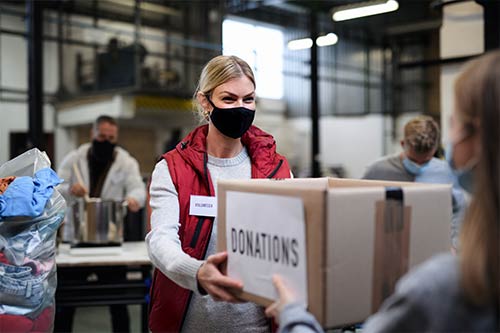For many people, the holiday season is not just a time for presenting gifts to loved ones; it’s the time of year they’re most likely to be making generous donations to charities to help others in need. According to one nonprofit clearinghouse, twenty percent of all charitable giving occurs in the month of December alone.
Nearly a year into a global pandemic that has disrupted families, ruined livelihoods and hospitalized millions, the need for charitable giving has never been more acute. Unfortunately, the situation has also created a lucrative niche for scammers, seeking to trick the unwary into “donating” to supposed charities that don’t exist or don’t do what they claim. The Federal Bureau of Investigation recently issued a bulletin warning consumers against shady online and telemarketing groups who are “leveraging the COVID-19 pandemic to steal your money, your personal information, or both.”
Here are a few tips offered by the FBI, the Federal Trade Commission, and other government agencies to help protect you from fraudulent charity schemes.
- Don’t be in a hurry. Scammers will often try to pressure you into an immediate donation or claim they are following up on a “pledge” to donate that you never made. Don’t go along with this, don’t volunteer any personal information, and don’t click on any links from unsolicited emails. If the cause sounds like something you might want to support, seek additional details from the charity’s official website and from watchdog websites (see below) before making any decision. Keep in mind that the solicitors may be using a name that sounds similar to a real charity and that the number on your caller ID may be “spoofed,” to make it look like the caller is local or based in a legitimate charity rather than operating out of a boiler room.
- Verify that the charity is legitimate. Several organizations monitor the nonprofit world and can help you determine if the charity actually exists and how it spends its money. These include the Better Business Bureau’s Wise Giving Alliance, CharityWatch, and Charity Navigator. In addition, the Internal Revenue Service offers a Tax Exempt Organization Search that can tell you if your donation would be tax deductible.
- Avoid unsecure transactions. Never pay by gift card or a wire transfer. A credit card is a safer way to go. Before doing so, determine what “administrative costs” might be involved that reduce the amount that might actually go to the cause you’re trying to support. After making the donation, check your account to make sure no additional charges are made.
- Report the fakes. If you do encounter a fast-spieling telemarketer or an email of dubious origin that you suspect is part of a charity scam, you can relay your suspicions to the FBI tipline or file a complaint with the FTC. You can also share your concerns with the agency that regulates charities in your state. Then you can relax and give freely — to a charity that deserves it.



